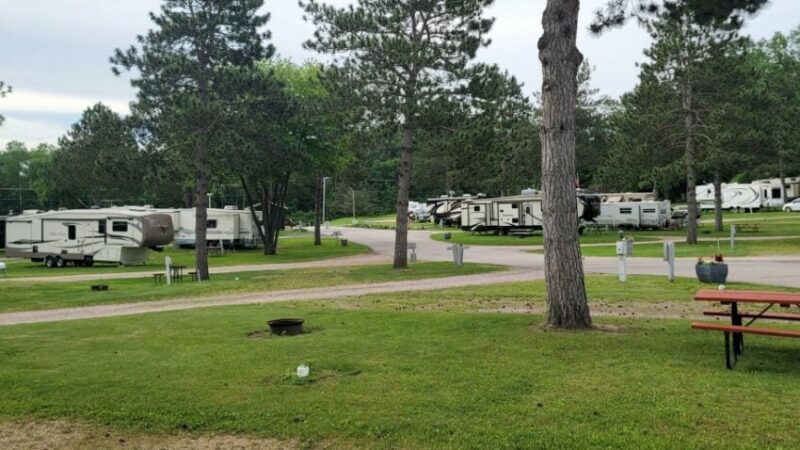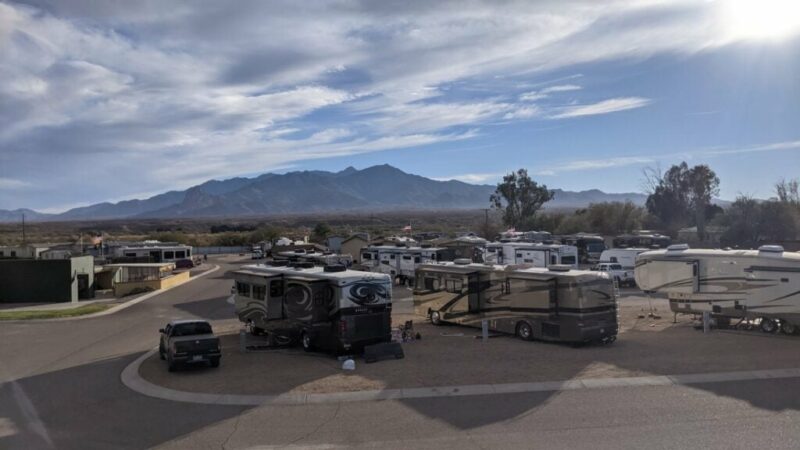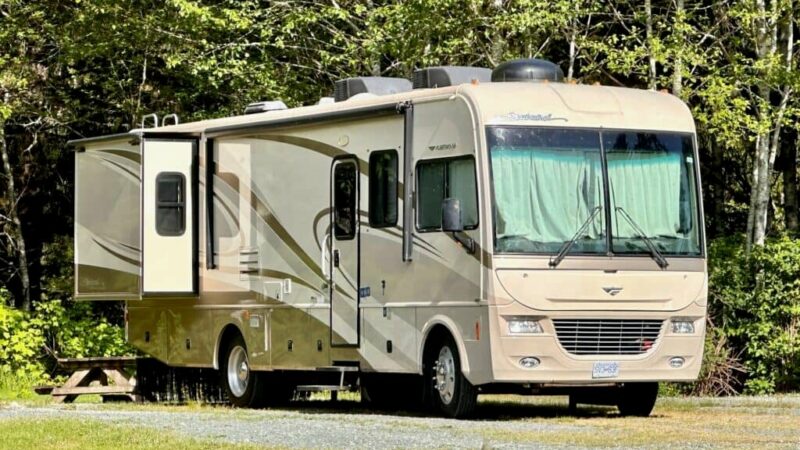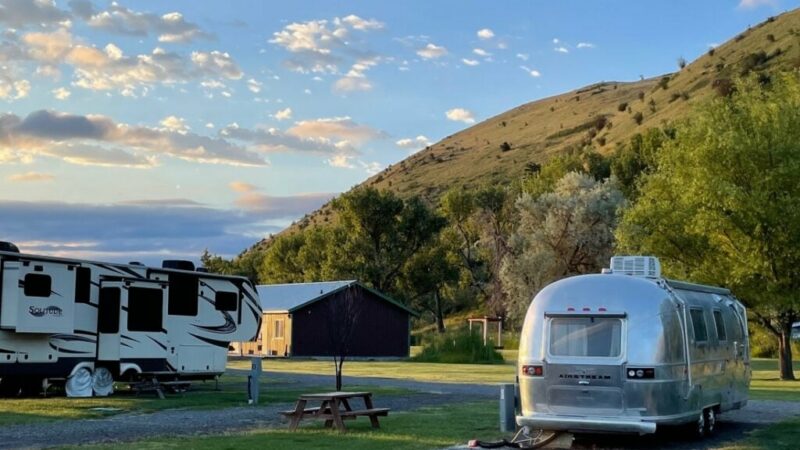How Do You Manage Chronic Conditions While RVing?

Managing Chronic Conditions On The Go: Medical Considerations & Resources
The RV lifestyle is popular among many different demographics, and it’s more accessible than ever in modern times. Thanks to digital devices and more people working remotely, it’s common for people to travel all year long. But if you need to manage chronic conditions or other health issues during your travels, you’ll need to make some adjustments to your plans.
Anybody can be diagnosed with medical complications, but it’s particularly common among seniors. If you’re dealing with consistent health issues, there’s a good chance that you need prescription medication, assistive devices, and other lifestyle supplements. Fortunately, you can access all of these things on the road, as long as you plan ahead.
Everybody can enjoy the RV lifestyle, but it’s always important to take the proper precautions for your health. Below, we have some tips and resources that can help you manage chronic conditions on the go.
Pick up medication on schedule
Medication is one of the most important parts of traveling with a chronic condition. If you have a prescription, you need to take that medication on a consistent schedule and you should never skip a dose. This can be tricky if you travel a lot, but fortunately, there are several options you can consider.
Pharmacy pick-up
For starters, try to refill your medication through a national pharmacy chain. This includes chains like Walgreens, CVS, and even Walmart. Most healthcare providers are willing to work with these businesses, so you can request to have your refills sent to a pharmacy near you.
Just double-check with your physician that this will work before you leave! It’s also a good idea to travel with your medical information and the original packaging of your prescription.
Mail/package forwarding service
If you get prescriptions mailed to you, you’ll want to apply for a mail service. Many of these cater to RVers, so you should be able to find a good option without much trouble. With the right service, your mail and packages will be forwarded to your current location. Some businesses deliver directly to RV parks, while others might go to nearby storage lockers or PO boxes.
Some worthwhile services to explore include:
Travel with assistance devices
This next tip will depend on the specific chronic conditions you have. In some cases, there are supplementary tools and devices that can make life easier. For instance, you might have compression clothing, stabilizing braces, or health trackers to monitor your activity, heart rate, blood pressure, etc.
Other devices like oxygen tanks, insulin pumps, CPAP machines, and inhalers may also be necessary. It all depends on what your doctor recommends and what works for you. Stock up on necessary gear before you head out on a trip. It’s better to be overprepared than caught off guard!
Choose health-conscious travel destinations
Next up, consider your chronic conditions as you plan your trips. It’s important to do your research on the various places where you’ll stay. There are several climate factors that could make your conditions much worse.
Temperature
First of all, think about the temperature of wherever you’re going. Some conditions can make it harder to regulate your body temperature, so particularly hot or cold destinations are off the table.
Don’t visit Arizona at the peak of summer or Montana in the middle of winter. You might want to become a snowbird so you can enjoy mild, warm temperatures all year long.
Elevation
High elevations can cause difficulty in breathing for some people due to the thinner air and lower oxygen levels. People with chronic lung conditions, like COPD or asthma, might find their symptoms worsen in high-altitude areas.
In addition, hiking at high elevations can be challenging due to the lower levels of oxygen. This can affect people with chronic heart diseases, as their hearts have to work harder to supply oxygen to the body.
Furthermore, even individuals without pre-existing conditions can experience altitude sickness if they ascend too quickly to high altitudes. Symptoms can include headaches, nausea, and shortness of breath.
However, it’s important to note that the impact of high elevation can vary significantly from person to person and from one condition to another. People with chronic conditions who are considering travel to high-altitude areas should consult with their healthcare provider for personalized advice.
Air quality
Finally, monitor the air quality of your destinations. This can change seasonally and even daily, but there are certain trends you can count on.
For instance, certain places will make your allergies flare up if they regularly have high pollen levels. Some cities may also produce smog that’s difficult to breathe. Other air quality factors include smoke, dust, mildew, and other forms of mold.
Stick close to hospitals and urgent care facilities
Many RVers love the lifestyle because it allows them to connect with nature. Although those with medical conditions can still enjoy rugged camping, it’s a good idea to stick close to cities. You never know when health problems could emerge, so it’s much safer if medical help is within striking distance.
Everyone can create their own radius of comfort, but generally, you should try to camp within 15 minutes of a healthcare facility. With that kind of distance, you can rest assured that ambulances and paramedics will reach you in a timely manner.
Stock up on diet-safe foods
Many chronic conditions require you to stay on a strict diet. Meal planning in an RV can be complicated, but it’s important to follow your health guidelines wherever you travel. Unfortunately, it can sometimes be hard to find specific foods and ingredients as you travel across the country. Not every store will stock the brands that you prefer!
Therefore, it’s important to travel with a cache of diet-safe foods. When you find a location that sells the things you need, buy extra of everything. You don’t want to run out of food when you’re in the middle of nowhere.
If possible, you can also try to incorporate widely available foods into your diet. Visit popular grocery chains and see if they have suitable alternatives to the brands you use. In some cases, you need to rely on very specific products. But sometimes, you can make substitutions where necessary. Ask your doctor for specific guidelines if this is a recurring issue for you.
Shorten travel days and don’t overschedule
Next up, it’s time to rethink your travel habits. Some RVers like to tackle long road trips in just a few days. They might drive for eight or more hours each day! Although this will certainly help you get from point A to point B, it can be terrible for your health. Fatigue, stiffness, and sensory strain are common side effects of long travel days.
To address this, remember to schedule plenty of breaks. You’ll also want to shorten your travel days so you don’t push beyond your limits. Creating harsh deadlines for yourself can be detrimental.
If you must rush from one place to another, try to plan some recovery days in between. There’s no shame in taking things slow, especially if you’re dealing with medical issues.
Remember that your RV could be making things worse
Finally, pay attention to how you feel when you’re in your RV. In some cases, this environment can worsen your chronic conditions.
Propane leaks, mold growth, and pest infestations can make your symptoms flare up. In addition, your RV might have airborne debris like dust and pollen if you don’t replace your air filters. Try to spend some time away from your RV, then judge if you feel better or worse when you go back inside.
Perform a thorough inspection for any issues. See if you can find allergens, mold, or signs of damage. If any of these issues are present, address them immediately!
However, it’s also possible that the RV lifestyle itself can be making your condition worse. The constant travel, sedentary habits, and inconsistent environments can be a lot for your body to adapt to. Try the tips above to see if you want to continue with this lifestyle.
Plan your trip ahead of time
For all of your camping and trip planning needs, look no further than RV LIFE Campgrounds and RV LIFE Trip Wizard. Campground Reviews is a trusted source of campground and RV park reviews offered by camping and RV enthusiasts just like you. With its accompanying RV LIFE App, RV Trip Wizard gets you to your camping destinations utilizing RV-friendly routes specific to your RV and travel preferences.
Been to a campground lately? Don’t forget to leave a review! Reviews help other RVers like yourself, and they help the campground. Leave a campground review today!
Related articles:
- How Can Full-Time RVers Get Medications?
- Retiring In An RV: Is It Right For You?
- The Best Mail Services For Full-Time RVers
The post How Do You Manage Chronic Conditions While RVing? appeared first on RV LIFE.






